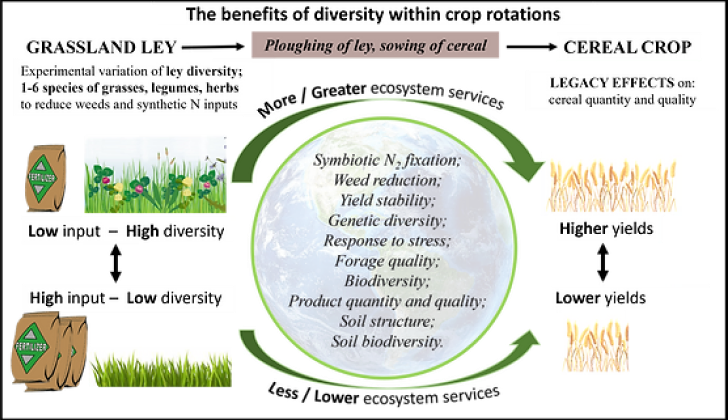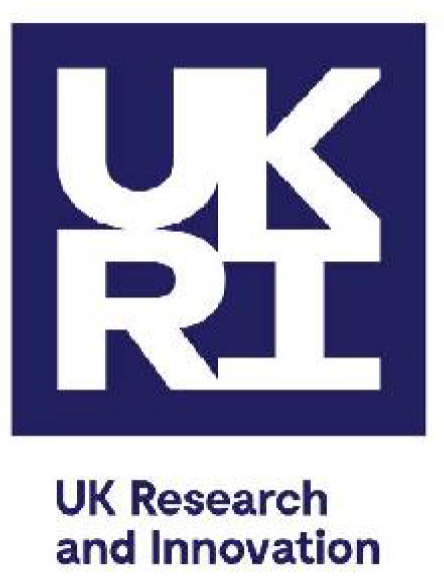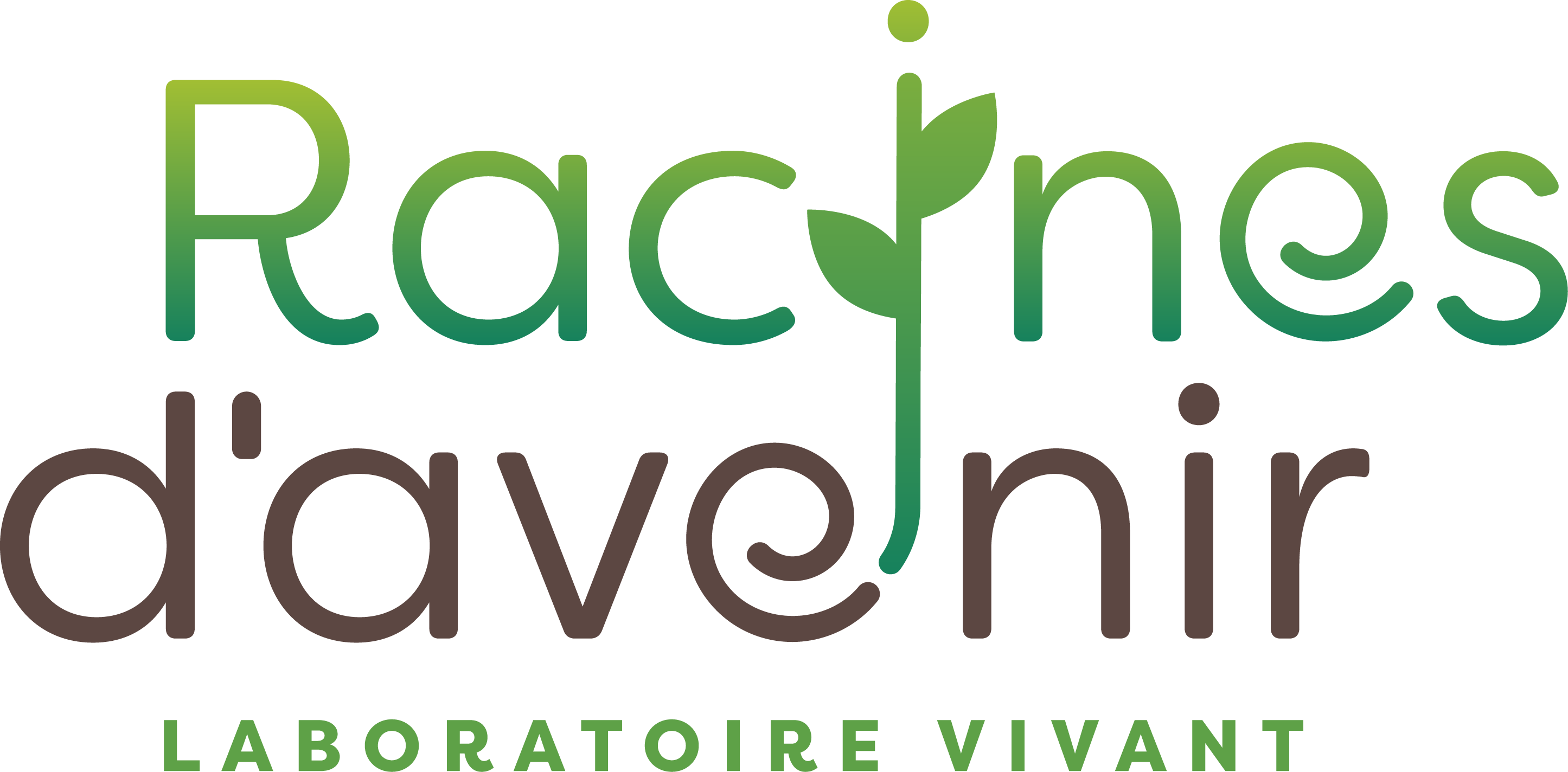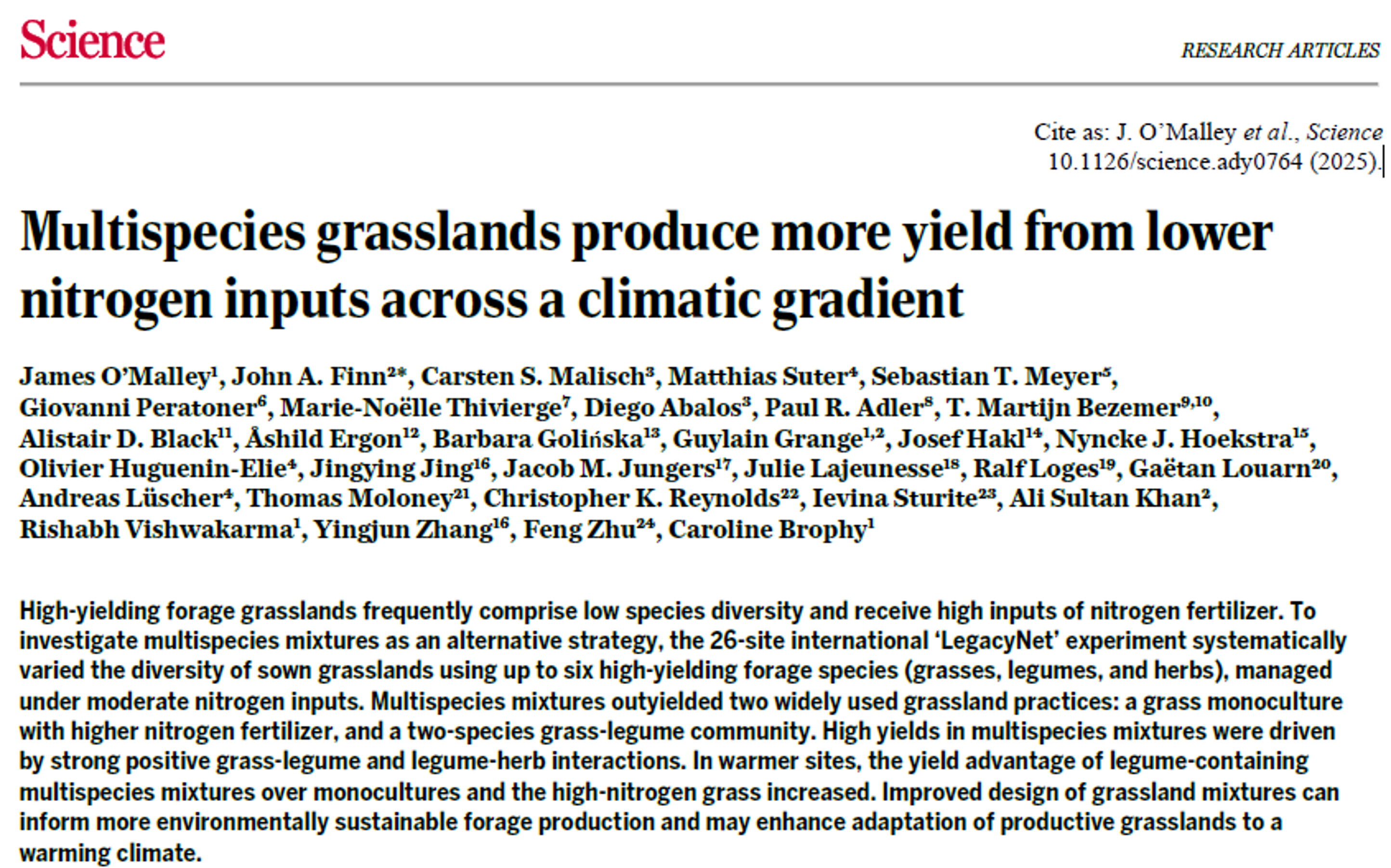What is LegumeLegacy?
With the European Green Deal, the EU has committed to transition to carbon-neutral and sustainable systems of agriculture. LegumeLegacy aims to adapt existing mixed or ruminant based production systems, using state of the art knowledge from ecology, agronomy, statistics and other fields to minimize greenhouse gas emissions, nutrient inputs and leaching (and costs), while increasing carbon stocks, biodiversity and yield stability. To achieve this, an exceptional and distinctive strategy of LegumeLegacy includes a common experiment across multiple LegumeLegacy sites; 11 Doctoral Researchers will collaborate on the common experiment and have their own distinctive and complementary research objectives.
To develop a model system of crop rotation, in the common experiment grassland plots of varying diversity of six species (two grasses, two legumes, two herbs, selected for complementary functional traits) will be established as a grassland ley, grown, and terminated; the grassland leys will be followed by a wheat crop. The effect of the diversity of the grassland ley on the performance of the crop rotation will be evaluated by measurement of yield, quality and environmental performance. LegumeLegacy will recommend the design of grassland leys within crop rotations that optimise agronomic and environmental performance; the multisite experiment will generalise the conclusion and its implementation potential across Europe.
Funding
-

This project has received funding from the European Union’s Horizon 2021
doctoral network programme under the Marie Skłodowska-Curie grant
agreement No. 101072579.
Views and opinions expressed are those of the author(s) only and do not necessarily
reflect those of the European Union. The European Union can’t be held responsible for them.

This work has received funding from the Swiss State Secretariat for Education, Research
and Innovation (SERI).
-

This work has received funding from UK Research and Innovation (UKRI) under the
UK government’s Horizon Europe funding guarantee [grant number EP/X028003/1]
to the University of Reading. -

The Canadian sites of this project were funded by the Living Laboratories
Initiative (or Agricultural Climate Solutions – Living Labs) of Agriculture
and Agri-Food Canada.


